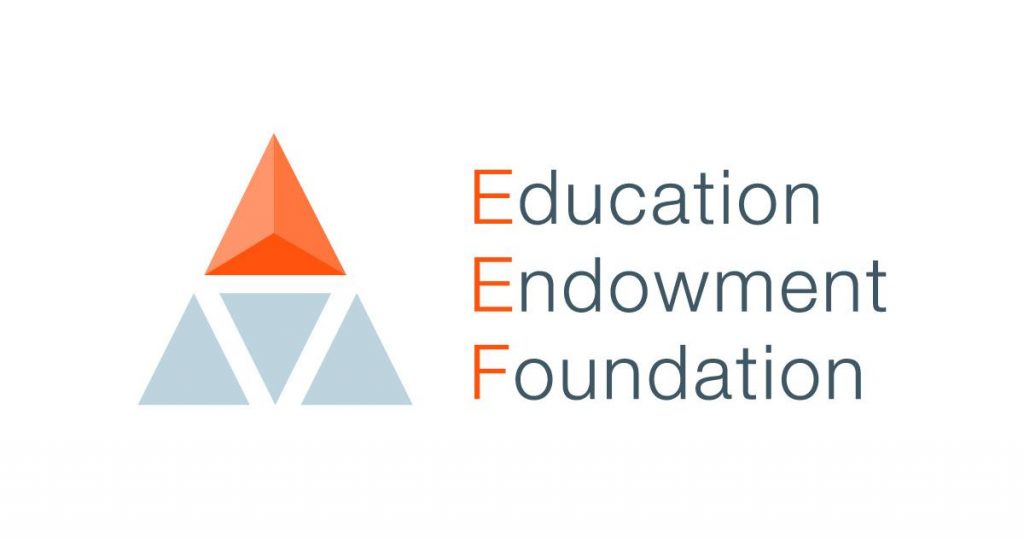 Today, we have the pleasure to meet up with Margaret Mulholland again. Margaret is a SEND Inclusion Specialist and the Project Director of WHOLE SCHOOL SEND REVIEW, an exciting and timely new research project to help mainstream schools rethink SEN Support. We asked Margaret for some insight into why it’s so important for mainstream schools.
Today, we have the pleasure to meet up with Margaret Mulholland again. Margaret is a SEND Inclusion Specialist and the Project Director of WHOLE SCHOOL SEND REVIEW, an exciting and timely new research project to help mainstream schools rethink SEN Support. We asked Margaret for some insight into why it’s so important for mainstream schools.
Why get involved in the Whole School Send Review?
There is no shortage of discussion around the current state of the SEND system. For many, it is in crisis. In every school now there is an increasingly difficult dynamic between the ability to offer the right provision based on pupil needs and the need to satisfy academic targets. At the most basic level, declining year on year funding is limiting adequate resourcing and lowering teacher confidence about how best to meet holistic and academic needs of pupils with complex profiles. These are now familiar challenges that need good thought.
The Educational Endowment Foundation (EEF) has been working with the National Association for Special Education Need (NASEN) to roll out the SEND Review Trial. It’s a valuable research project to examine actual issues that schools face in delivering SEN support, and there is an opportunity now for mainstream secondary schools to get involved.
What is the Whole School SEND Review?
 The Review process was originally designed by the London Leadership Strategy (LLS) led by school leaders and itself born out of London Challenge. It has been rolled out by leaders and Local Authorities with very positive results. The EEF see it as a ‘good bet’ because it gets to the heart of addressing the dynamic of balancing additional support for pupils with SEND with designing a positive whole school strategy. In principle it provides a framework that helps school leaders evaluate the effectiveness of current SEND provision through a structured self-evaluation and peer review with another school. It’s an important study as there is a need for more evidence of the impact of a whole school approach to SEN.
The Review process was originally designed by the London Leadership Strategy (LLS) led by school leaders and itself born out of London Challenge. It has been rolled out by leaders and Local Authorities with very positive results. The EEF see it as a ‘good bet’ because it gets to the heart of addressing the dynamic of balancing additional support for pupils with SEND with designing a positive whole school strategy. In principle it provides a framework that helps school leaders evaluate the effectiveness of current SEND provision through a structured self-evaluation and peer review with another school. It’s an important study as there is a need for more evidence of the impact of a whole school approach to SEN.
Currently, tools for improving the progress of pupils with SEND often focus heavily on interventions and ‘catch up’ strategies to improve pupil attainment. These interventionist approaches operate at a pupil level and EEF has produced useful guidance to help schools judge the most effective of these; evaluating both quality and value for money. However, for pupils who are struggling to make sustained progress, whole school change is also needed and sustained through the most important contributor – great teaching.
The process is based on the premise that excellent teaching for pupils with SEND is excellent teaching for all.
The process is based on the premise that excellent teaching for pupils with SEND is excellent teaching for all. There is some evidence to indicate that teacher confidence in teaching pupils with SEN is low, and this needs to be addressed. The SEND Review is a tool that can help schools to see the value and mechanisms to build teacher confidence and strengthen SEN provision. Manchester Metropolitan University will evaluate the impact of the WSS review through a randomized control trial that will focus on improvements for pupils with SEND determined by academic, well-being and behaviour outcomes.
Why is this project so necessary?
According to the EEF, the SEND Review is of particular interest because the impact of SEND on academic attainment is closely related to the EEF’s focus on economic disadvantage. 27% of pupils with special educational needs are eligible for free school meals compared to 12% of pupils without special educational needs. The process signposts schools to the EEF Teaching and Learning Toolkit when looking for evidence-based interventions to meet their needs and promotes well-evidenced approaches such as metacognition.
 However, the evidence base for specific SEND interventions is weak in secondary schools, because very few high-quality evaluations have been conducted with this age group. The project seeks to address this gap.
However, the evidence base for specific SEND interventions is weak in secondary schools, because very few high-quality evaluations have been conducted with this age group. The project seeks to address this gap.
This is positive on a number of levels. The recognition that good teaching is central to progress is well understood. Understanding that good teaching is key to effective inclusivity is less so. Other factors, the recognition of individual difference, the fact that disadvantage is not only shaped by ethnicity or socio economic status also play a role. Fundamentally, pupils with SEN continue to experience the unintended consequences of comparative accountability. Where pupils are categorised by assumptions of average, below average and gifted pupils, the danger is that students with SEND are too readily associated with below average. Their work is dumbed down and expectations are reduced. And teachers themselves can lack the confidence to recognise individual difference and to adapt teaching to provide a clear path to the curriculum. It’s time to bust myths about pupils and how they learn. EEF is feeling increasingly clear about the value of looking at how evidence can support understanding of ‘what works’ for ALL, not just for the majority of pupils. This willingness to focus on SEND is an exciting opportunity for the use of evidence that informs change; a change in teaching and in school culture.
SEN Support is about removing barriers to learning.
The term SEN support describes how needs will be met for pupils who have an identified special educational need but who do not have a statutory Education Health Care Plan. If there is evidence to show that a pupil with SEN is not making as much progress as they could be, then the school will put the pupil on the SEN register for ‘SEN Support’ sometimes referred to in schools as the ‘K’ list.
The Code of Practice tasks schools with removing barriers to learning for these pupils and putting effective provision in place. It makes specific recommendations about ‘how’ this should happen over a four-part cycle through which earlier decisions and actions are revisited, refined and revised with a growing understanding of the pupil’s needs and of what supports the pupil in making good progress and securing good outcomes. It’s called the graduated approach. It draws on more detailed strategies, more frequent review and more specialist expertise in successive cycles in order to match interventions to the strengths and needs of children and young people.
It’s an exciting development in a mainstream environment as it offers an approach to good teaching for all pupils rather than one we adopt only for pupils with SEN. As Dylan Wiliam has shown us, small steps formative assessment is key to good teaching.
What will the schools gain from involvement?
Clarity! The best outcomes are from the schools who really apply critical lens to their self review, seek change and improvement across the school by involving all staff from canteen staff to headteacher, pupils and parents. Often it is the stronger schools that are prepared to do this. We have found that coaching from the research project directors can offer additional confidence and support the schools professional criticality. We want to scaffold the process and support schools to take those difficult steps. Moving beyond your comfort zone takes bravery, and good planning around SEN support really can help shift understanding from an operational standpoint to a strategic perspective.
What kind of examples of concrete innovation come through?
First of all, asking which intervention to use to help pupils make progress usually isn’t a sufficiently nuanced or contextual question. Intervention suggests SEND provision is made up of bolt on to what is usually available in the classroom. Secondly, we have to be careful about approaches that tweak or seek to change the pupils rather than what they are capable of. At a whole school level, working with parent led groups can be very effective. Upskilling Teaching and Learning for SENCOs and creating opportunity for SENCO and T&L leads to work together helps to reshape priorities. A review of CPD to encourage SEND as intrinsic to teaching is another route. This doesn’t mean there aren’t discreet SEND sessions in school CPD, but a leadership position on making SEND central to school improvement makes a difference.
We have been working with Headteachers to make sense of evidence from recent national research including the NAO Report and the SENCO workload survey as well as the increasing number of reports emerging that relate to exclusions. This highlighted both a need and desire for SENCOs to focus more on capacity building and less on the burdensome paperwork associated with SEN.
In summary
The SEND Review is a school improvement tool strengthening pupil outcomes through an explicit lens on struggling learners addressing provision but most importantly, effective pedagogy. It allows schools to navigate the journey from operational to strategic development planning for SEND.
Secondary schools can still sign up to be part of the SEND Review Trial. The deadline for applications is April 3rd.
Contacts:
Margaret.m@nasen.org.uk or project manager Helen Prosser helenp@nasen.org.uk
